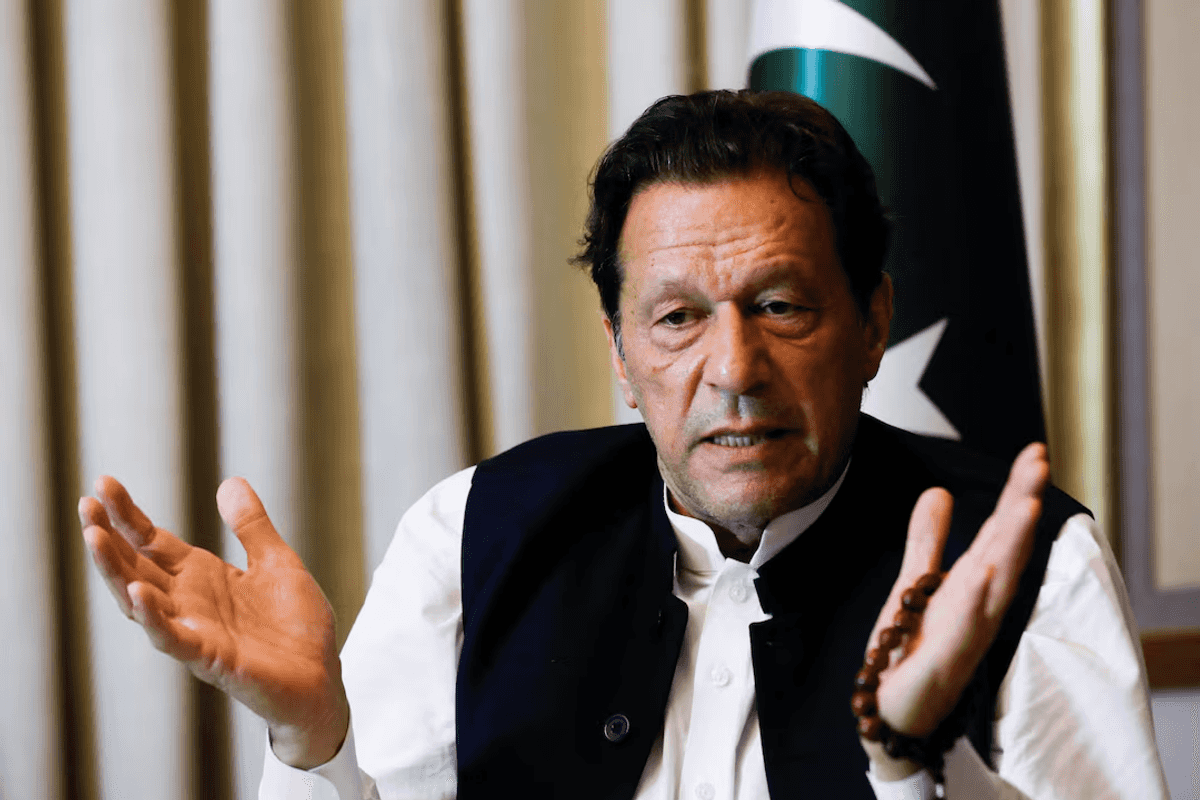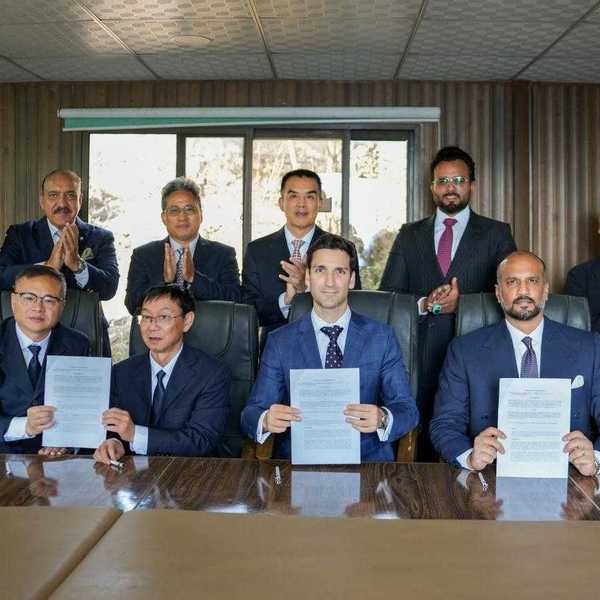Khan’s lawyers boycott court proceedings over video link failure in May 9 GHQ attack case
The Anti-Terrorism Court in Rawalpindi heard eight more witnesses during the hearing today
Ali Hamza
Correspondent
Ali; a journalist with 3 years of experience, working in Newspaper. Worked in Field, covered Big Legal Constitutional and Political Events in Pakistan since 2022. Graduate of DePaul University, Chicago.

Former Pakistani prime minister Imran Khan speaks during an interview with Reuters.
Reuters/File
Forty-one prosecution witnesses have testified so far in Pakistan’s high-profile case over the May 9, 2023, attack on the army’s General Headquarters (GHQ). Former Prime Minister Imran Khan appeared via a WhatsApp video link during the proceedings.
At Tuesday’s hearing, the Anti-Terrorism Court in Rawalpindi heard eight more witnesses.
They included Pakistan Electronic Media Regulatory Authority (PEMRA) Additional Director Nader Khan; Federal Investigation Agency (FIA) technical experts Anis ur Rehman and Muhammad Imran; Press Information Department (PID) deputy directors Muhammad Tariq and Hasnain Wazir; former Islamabad Assistant Commissioner Muhammad Abdullah; Owaid Irshad Bhatti; and Bial Ahmed, a section officer at the Ministry of Interior. Each submitted their reports to the court.
According to Imran Khan’s legal team, poor connectivity meant neither his voice nor image could be heard or seen during the proceedings. Despite the technical failure, Judge Amjad Ali Shah continued the hearing and began recording evidence.
In protest, Khan’s lawyers — including Salman Akram Raja, Faisal Malik, and other members of the PTI legal team — boycotted the session.
The case is being heard by Judge Amjad Ali Shah, who adjourned proceedings until Sept. 27. He ordered more prosecution witnesses to appear at the next hearing. Special prosecutors Naveed Malik and Zaheer Shah represented the state.
This was the first time Khan appeared through WhatsApp after the Punjab provincial government moved the trial from Adiala Jail to the antiterrorism court in Rawalpindi to speed up the process.
May 9 cases
The case stems from violent protests on May 9, 2023, when demonstrators stormed military sites after Khan was briefly arrested in a corruption case. Among the targets was Jinnah House in Lahore, a colonial-era mansion that serves as a symbol of military leadership.
Authorities later charged protesters with terrorism, sedition, mutiny, and rioting. The government described the violence as an attack on state institutions. Khan’s Pakistan Tehreek-e-Insaf (PTI) party insists the charges are politically motivated.
In the aftermath, military courts sentenced dozens of civilians to prison terms ranging from two to 10 years. Human rights groups, including Amnesty International, criticized those trials as lacking transparency and violating international fair trial standards.
Khan, 72, was removed from office in 2022 after a no-confidence vote in parliament. He has been jailed since August 2023 and was barred from contesting Pakistan’s February 2024 general elections, which his party claimed were rigged.
Although Khan denies organizing the May 9 unrest, several senior PTI leaders have already been convicted in related cases, deepening the party’s political troubles.







Comments
See what people are discussing